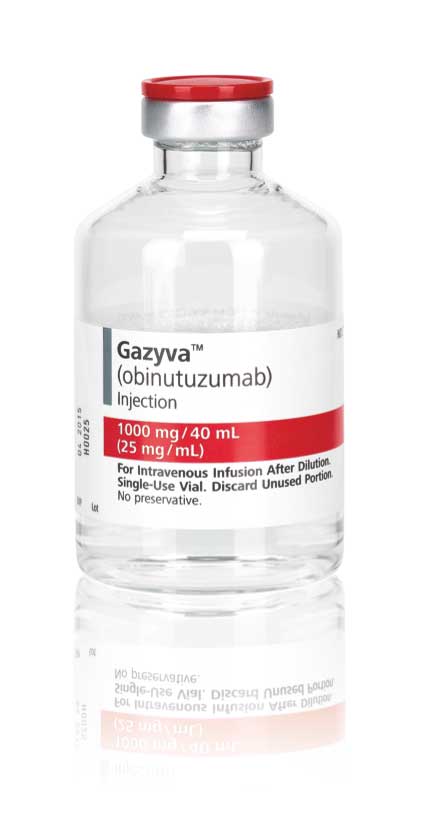Roche has gained FDA approval for Venclexta (venetoclax) in combination with Gazyva (obinutuzumab) in a new front line use in patients with previously untreated chronic lymphocytic leukaemia (CLL) or small lymphocytic lymphoma (SLL).
Venclexta (Venclyxto outside the US) is co-marketed by AbbVie and Roche and the combination with Gazyva in first line treatment of CLL could see its use expanded greatly.
The drug is one of a new generation of CLL treatments now expanding into frontline use. Roche’s marketing partner AbbVie has a stake in a direct rival, Imbruvica, which it co-markets with J&J.
In January, Imbruvica gained approval in first line treatment in combination with Gazyva, making it the first non-chemo combination in this setting.


Chemotherapy-free treatment for these previously untreated patients is the new paradigm competitors are pushing for, with trials showing advances over the standard therapy.
However, the added cost of this shift, and the availability of biosimilar rituximab (Gazyva’s precursor) will raise cost effectiveness objections from European payers.
The combination will open up new options for those patients who are ineligible for chemotherapy treatment, however.
The approval was granted under the new FDA Real-Time Oncology Review pilot programme, which aims to develop more fast and efficient ways to review treatments.
The combination’s approval was based on the phase 3 CLL14 study of Venclexta plus Gazyva, compared to Gazyva plus chlorambucil in previously untreated CLL and co-existing medical conditions.
The study met its primary endpoint and showed a statistically significant reduction in the risk of disease worsening or death (progression-free survival [PFS] as assessed by investigator) compared to standard-of-care Gazyva plus chlorambucil, with a good safety profile.
Results showed the combination of Venclexta plus Gazyva produced a durable and significant reduction in the risk of disease worsening or death (progression-free survival [PFS] by 67% compared to Gazyva plus chlorambucil, a current standard-of-care (HR=0.33; 95% CI 0.22-0.51; p<0.0001).
Venclexta plus Gazyva showed a higher rate of minimal residual disease (MRD)-negativity in the bone marrow compared to Gazyva plus chlorambucil (MRD-negativity of 57% vs. 17%) and peripheral blood (MRD-negativity of 76% vs. 35%). MRD-negativity means no cancer can be detected using a specific and highly sensitive test, defined as less than one CLL cell in 10,000 white blood cells.
Results of the study will be presented at the ASCO congress in Chicago next month.
As so many new competitors reach the market, doctors want to explore options beyond those offered by the pharma companies own trials. One example of that is academic research networks who are carrying out their own research of the new agents in combination with Gazyva’s successor treatment, Roche’s off-patent MabThera/Rituxan (rituximab).
One such trial is FLAIR, being conducted by Cancer Research UK, which aims to determine the best treatment and combinations for CLL, including one arm of the trial which pits Imbruvica against Venclexta (Venclyxto).
As well as the challenge of biosimilar rituximab, AstraZeneca’s late-stage BTK inhibitor (the same class as Imbruvica) is also waiting in the wings. The company recently announced positive phase 3 data of its challenger Calquence (acalabrutinib) in previously-treated CLL, with the trial stopped early because of the strong results.




